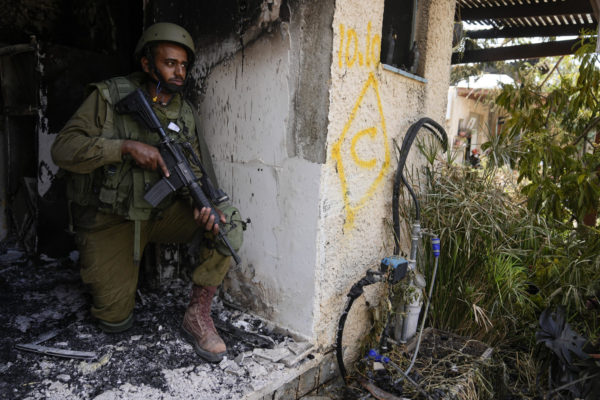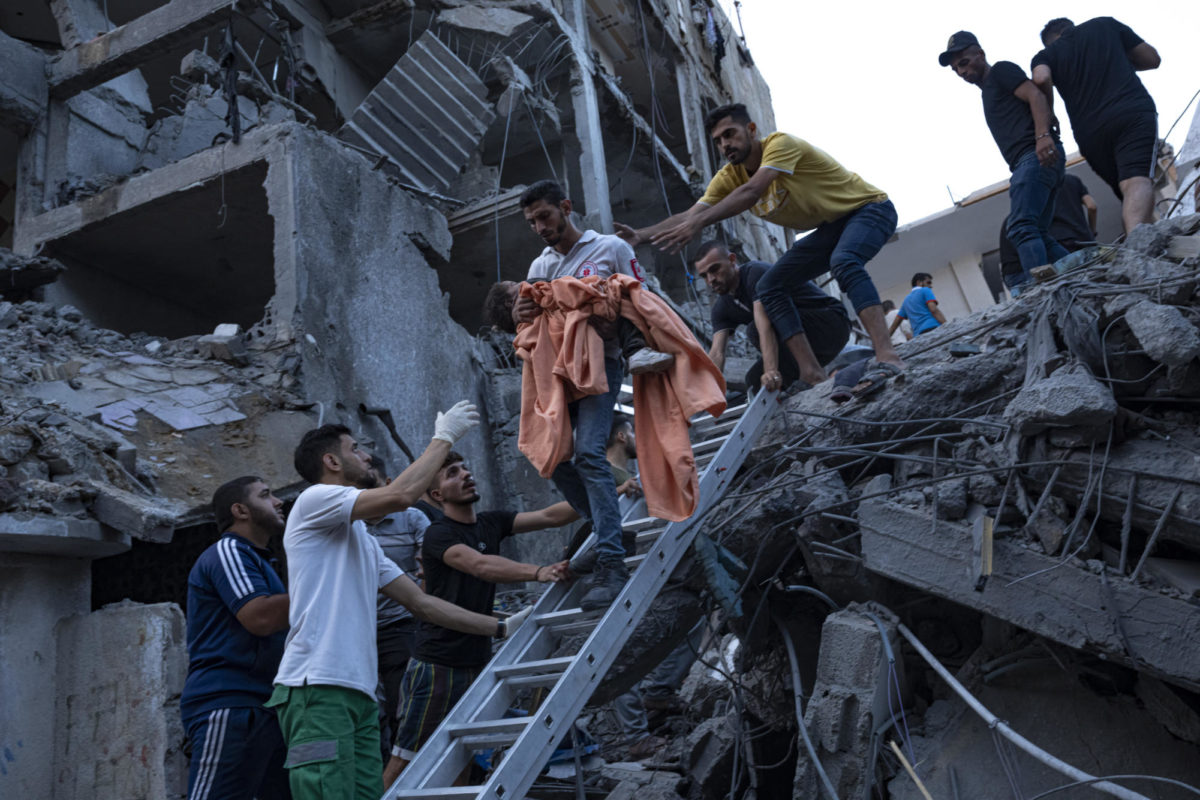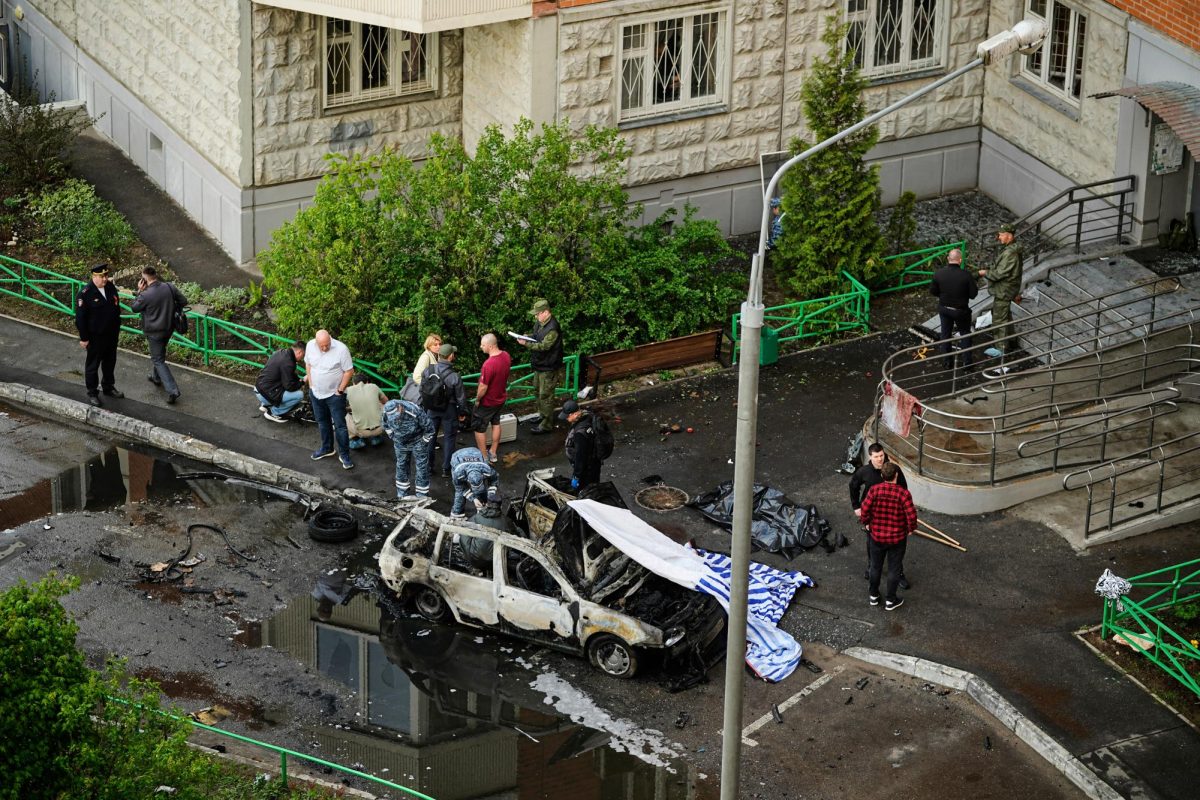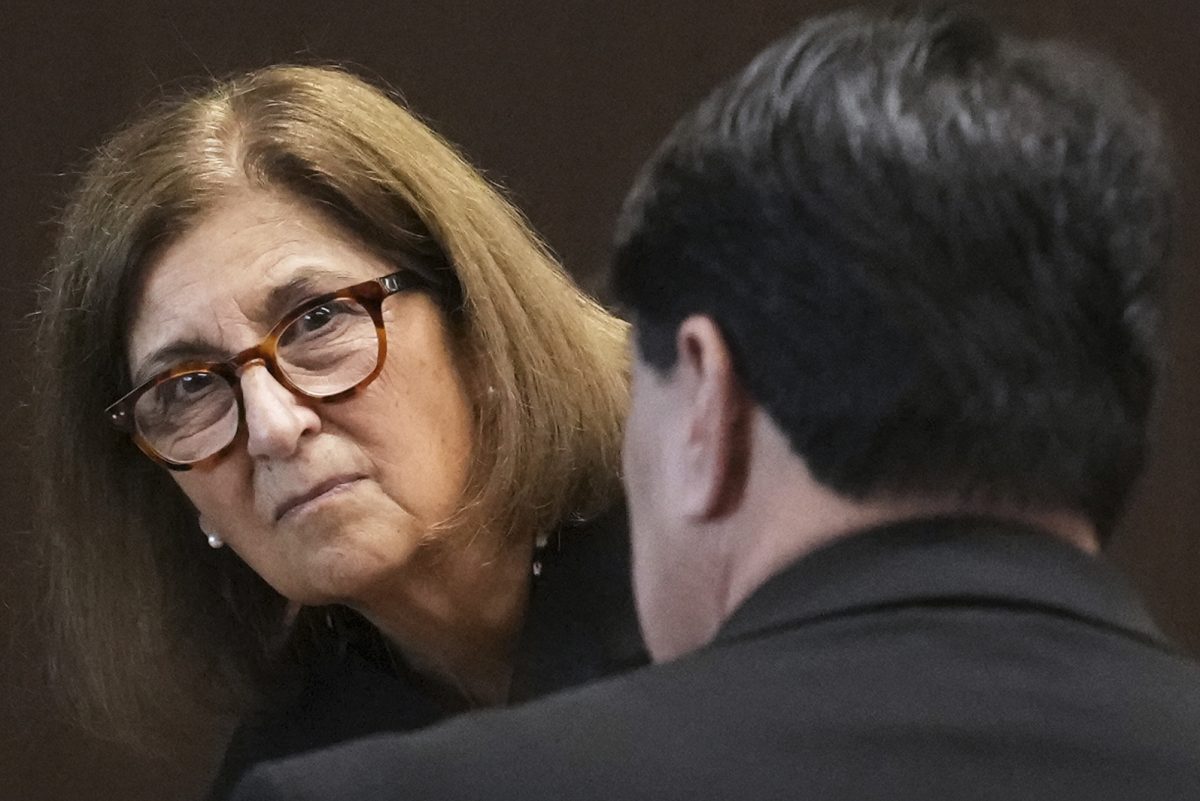This week’s war between Israel and Hamas has left American tourists, including some from North Texas, stranded in Israeli towns and airports.
Mara Richards-Bim, a master of divinity student at Southern Methodist University’s Perkins School of Theology, was midflight to Tel Aviv Saturday when the attacks began. Richards-Bim and her mother were traveling with the Dallas interfaith group Faith Commons, for a ‘dual-narrative’ trip: both an Israeli and a Palestinian guide would lead the tour.
The plan was to visit religious sites and consider them through the context of today’s political realities, Richards-Bim said.
“One of the places… was a village that was covered in the New York Times last weekend. It’s a peace village created by Palestinians and Israelis,” she said.
But by the time her plane landed in Tel Aviv, a series of surprise attacks had rocked southern Israel. Palestinians, led by the nationalist group Hamas, launched over 2,000 rockets at southern and central regions of Israel. Armed with rifles, they stormed blockaded areas of the Gaza Strip.
Upon landing in Tel Aviv, Richards-Bim said, it became apparent that the situation had changed rapidly and the trip could no longer take place.
“We were the last flight to land that day,” Richards-Bim said in an interview from the Tel Aviv airport. “As we were working to disembark, it had already been decided that the tour would be canceled. It was decided the safest thing to do was to go to our hotel in West Jerusalem, eat, and figure out how to get out.”
Richards-Bim said officials with the SMU Office of Risk Management contacted her within three hours of landing in Israel on Saturday and began making plans for Richards-Bim and her mother to evacuate.
“Our hotel is about 40 miles from Gaza. We can hear the rockets going off, but they aren’t falling near us. We’ve got some guardian angels working behind the scenes to get me and my mom out in the next day or so,” Richards-Bim wrote on Facebook.
Richards-Bim and her mother left Israel for Turkey Monday night. They landed in DFW and reunited with their family Tuesday evening.
Eleven members of their travel group crossed the border from Israel into Jordan early Tuesday. They plan to return to DFW from Amman.
“I was in Israel in January, and had the opportunity then to have dinner in the West Bank with a Palestinian Christian family… it is an oppressive, unfair way to live,” Richards-Bim said. “It needs a resolution and Israel should also be allowed to live in peace.”

Dallas-area resident Molly Mackdanz, who had traveled to Israel on Sept. 30 to visit friends, now finds herself stranded.
“Prior to [the attacks], we sensed nothing,” said Mackdanz, who spoke from a bomb shelter in Golan Heights, Israel. “I even took a tour bus and went to Bethlehem, which is an occupied area run by Palestine. There was no sense of anything. I woke up and my friend basically said ‘We’re at war.'”
Mackdanz is among those impacted by U.S. airlines’ decision to cancel flights to and from Israel en masse. Mackdanz attempted to contact the U.S. embassy in Tel Aviv on Monday, seeking help with finding a way out.
However, because American embassies observe United States federal holidays, the embassy was closed in observance of Indigenous People’s Day.
“All the embassy is telling us to do is to sit tight and be safe and do not go anywhere,” Mackdanz said. “They gave us information about crossing at different borders, like going from Israel to the West Bank and Israel to Jordan. I’m not going to cross into another country that I don’t know anything about.”
On Monday, Mackdanz said that she had secured a seat on a flight out of Israel, but it was later scrapped.
“We just need help,” Mackdanz said. “We need someone to get something going to get the Americans out of here, because it’s gonna get worse before it gets better.”







